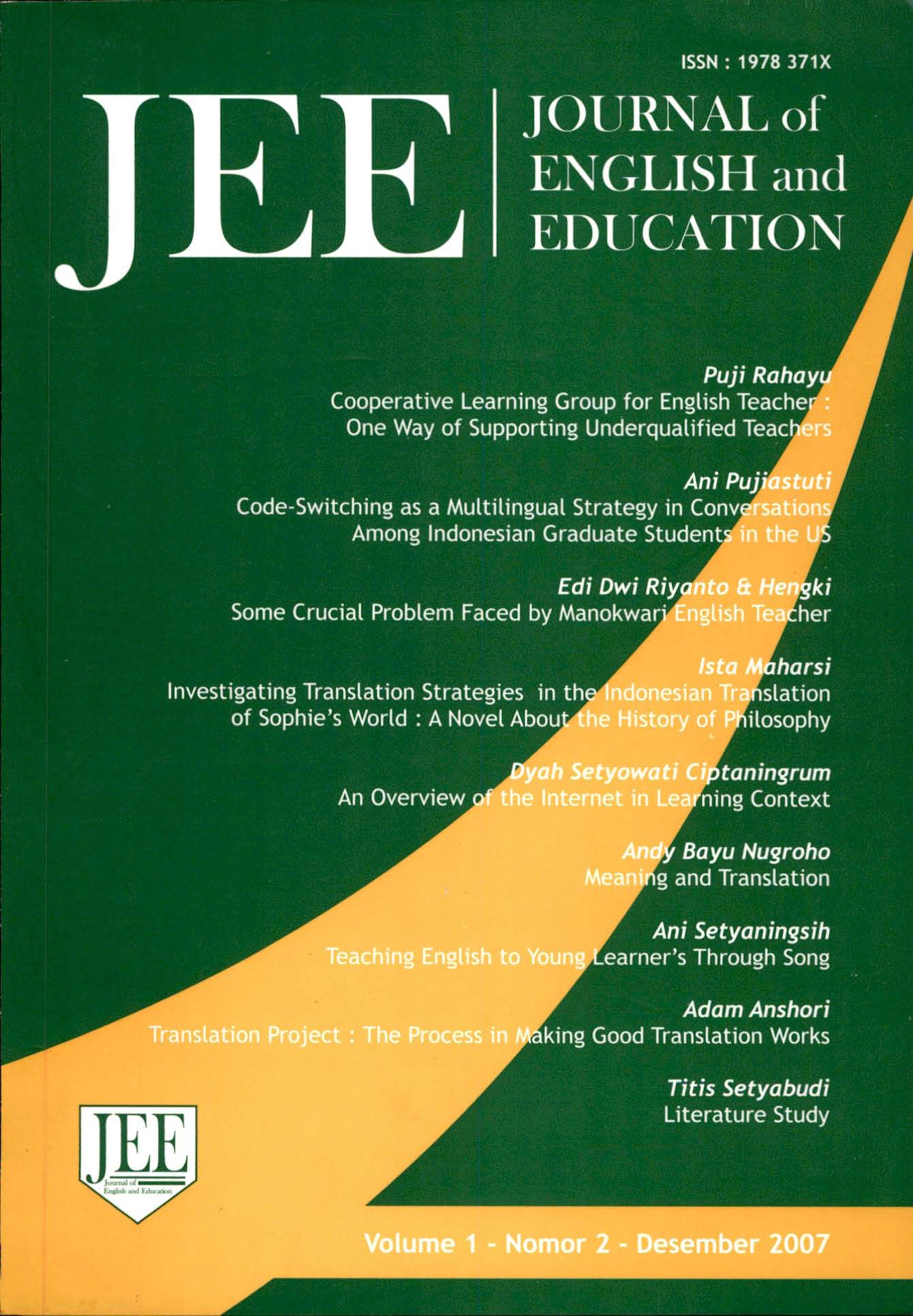Main Article Content
Abstract
This paper discusses Hawthorne's attitudes toward his ancestor's religious belief depicted in his work "Young Goodman Brown". The analysis is conducted by using sociological approach as this approach concentrates on the social context of writing or on die literary text and its social meaning. It also explores the relationship between the artist and society as this approach believes that the writers are part of the world they describe. Thus, the biographical sketch of the author is also presented to support the analysis.
Based on the analysis, it can be concluded that "Young Goodman Brown" reveals Hawthome's skepticism toward Puritanism, his ancestors' religious belief. The main character's inner conflict dealing with his religious belief portrays the writer's question on the worth of the very strict doctrine that his ancestors possessed. Expressing his anti-Puritan view, he creates the setting of the story which reminds his audience of the outrageous trials conducted by Puritans in 1692 known as Salem Witch Trials. He also borrows the characters' names from the victims of those trials. The downfall of his tragic hero caused by his distrustful feeling toward his own religion also indicates Hawthome's skepticism to Puritanism.
Keywords
Article Details

This work is licensed under a Creative Commons Attribution-ShareAlike 4.0 International License.

